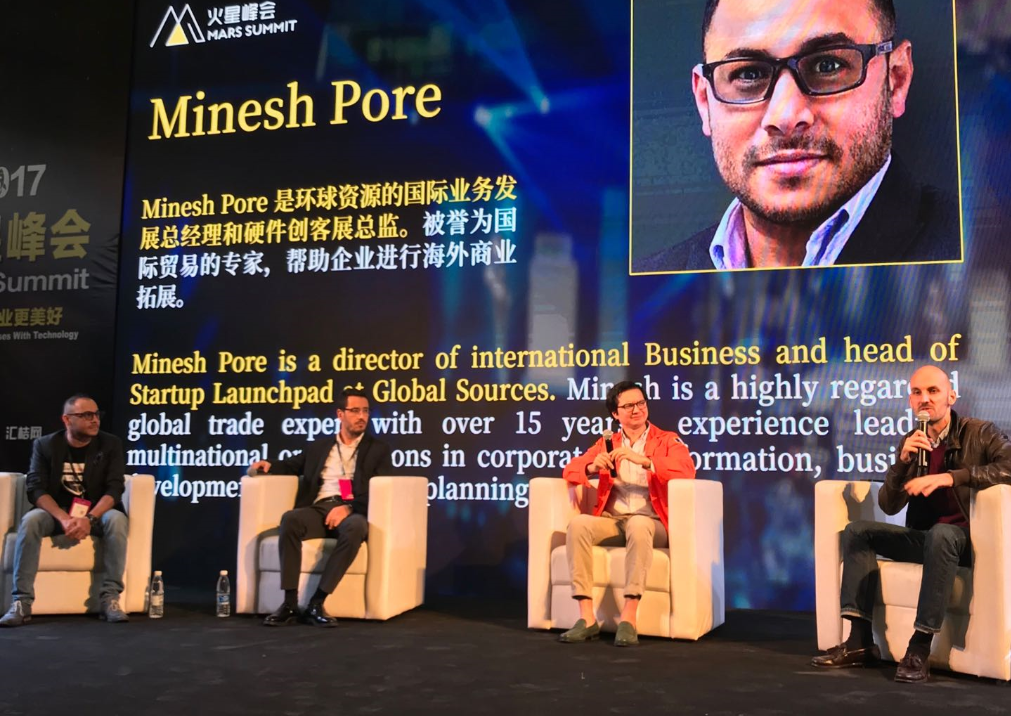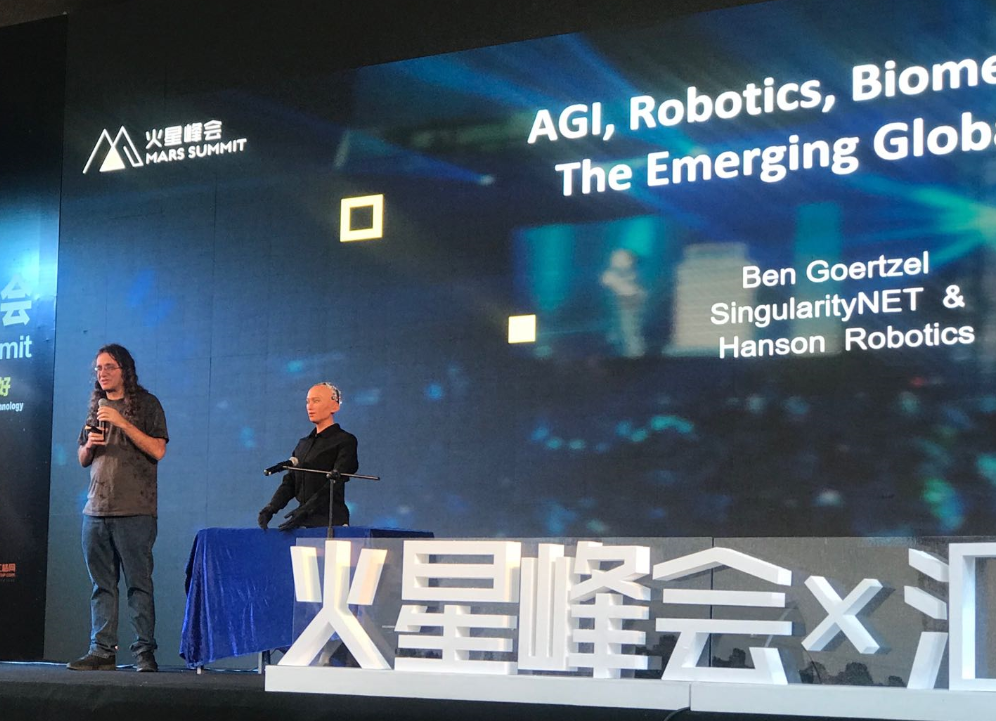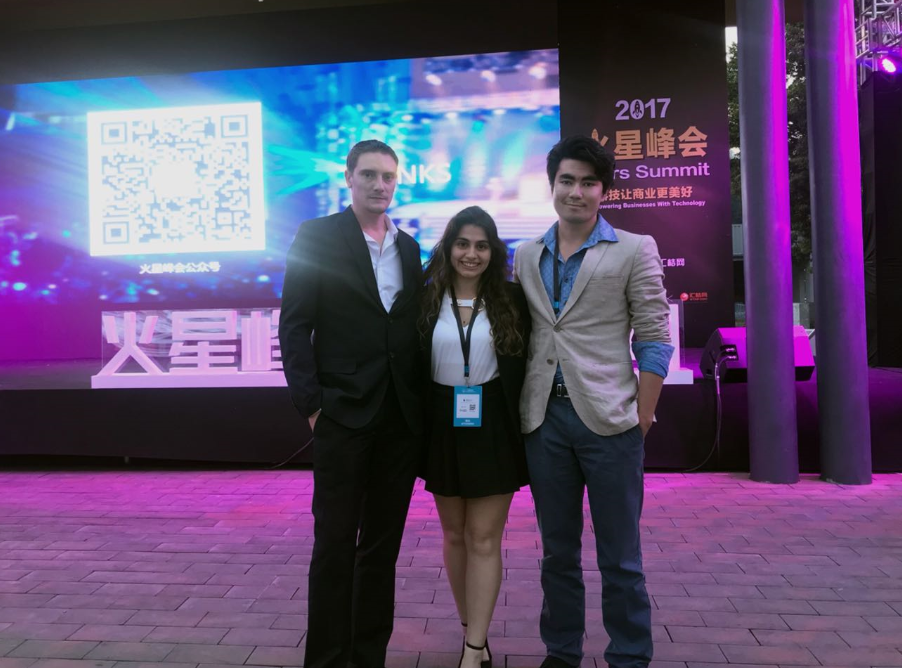At around a quarter to 9 a.m , came out of exit D1 of Shekou Port Metro Station, in the southern part of Nanshan District. I took my phone out and quickly booked a car on the Didi app to take us to the conference.
As we waited for the car to arrive, a seemingly lost, dark-haired man in his black suit approached us pulling his heavy luggage. An Israeli-born CEO of a company in the AI industry located in Shanghai.
We welcomed him to share the Didi with us and after a few minutes ride we arrived at a former glass factory which is now known as the Value Factory, a new cultural hotspot in Shekou. This was the location for biggest tech conference in southern China, Mars Summit.
Panelists at Mars Summit 2017
With more than 50 speakers and five-thousand attendees, the Mars Summit promised a mix in favor of creativity, innovation, knowledge and networking. According to Forbes, “this is a must-attend conference for anyone who’s interested in the China Market.” We were immersed in a wide variety of topics with many conferences going on at the same time on three different stages.
We learned first-hand the trends in business and technology in the Chinese market, but also the ones to come in the near future. But not only in China. With more than 20 countries represented in the conference, the knowledge gathered in the old factory was global. With the top leaders in the business and technology field sharing their expectation of market behavior in the future through one-on-one discussions or speeches, it is unquestionable that the time was well-spent at the summit.
Dr. Ben Goertzel and Sophia at Mars Summit 2017
The most anticipated speech was that of Dr. Ben Goertzel and Sophia, the humanoid robot developed by Hanson Robotics.Hanson Robotics creates amazingly expressive and lifelike robots that build trusted and engaging relationships with people through conversation.
Dr. Goertzel presented how the AI robots will be connected and how this could disrupt the economic world as we know it today. However, such development in robots also poises the question of what will happen if the robots that we create are smarter than human beings. Some answer this will mean the extinction of the human species. However, there are others that argue that for machines to have the will and desire for power, these have to be built into them. Dr. Goertzel says we should build and program the robots from the start to help and work with humanity, and not against it.
PHBS Students at the Mars Summit 2017. From left to right Arthur Jean Meunier, Deniz Yapmis, and Sergey Ivanov
“A lot of the bad things human do to each other are very specific to human nature. Behavior like becoming violent when we feel threatened, being jealous, wanting exclusive access to resources, preferring our next of kin to strangers, etc were built into us by evolution for the survival of the species. Intelligent machines will not have these basic behavior unless we explicitly build these behaviors into them,” commented Professor Yan LeCun, a computer scientist well known for his work on optical character recognition and computer vision using convolutional neural networks (CNN), and is a founding father of convolutional nets.
Several PHBS students attended the Mars Summit as free entrance tickets were kindly provided in conjunction of Turkish Airlines and PHBS. One of these students was Deniz Yapmis, my fellow classmate in the master’s of Management program in PHBS. Once Sophia said goodbye in Mandarin to the audience, I asked Deniz to sit with me on one of the couches near the stage where I picked her brain for general thoughts about the summit.
“Technology is developing in a blink of an eye, and it is very difficult to keep up with it. Therefore, it is important for people, and especially us students, to read more and attended conferences such as this one today where professionals are willing to share their accrued knowledge.” Deniz’s thoughts are aligned with what Steve Wozniak, Apple’s co-founder said: “One of the best things young people can do is to attend tech conferences like this.”
“I am very grateful to have come to the event. I walk out of this conference very satisfied as I’ve broaden my knowledge,” Deniz added towards the end of our conversation.
The Mars Summit is an example of one of the opportunities of studying at PHBS. Shenzhen is the Silicon Valley of Asia, with many giant tech companies based here it provides PHBS students with close ties to today’s market, but also to those creating the future just a few kilometers from campus.
Reported by Seimar Solano Nelson
Edited by Annie Jin

















